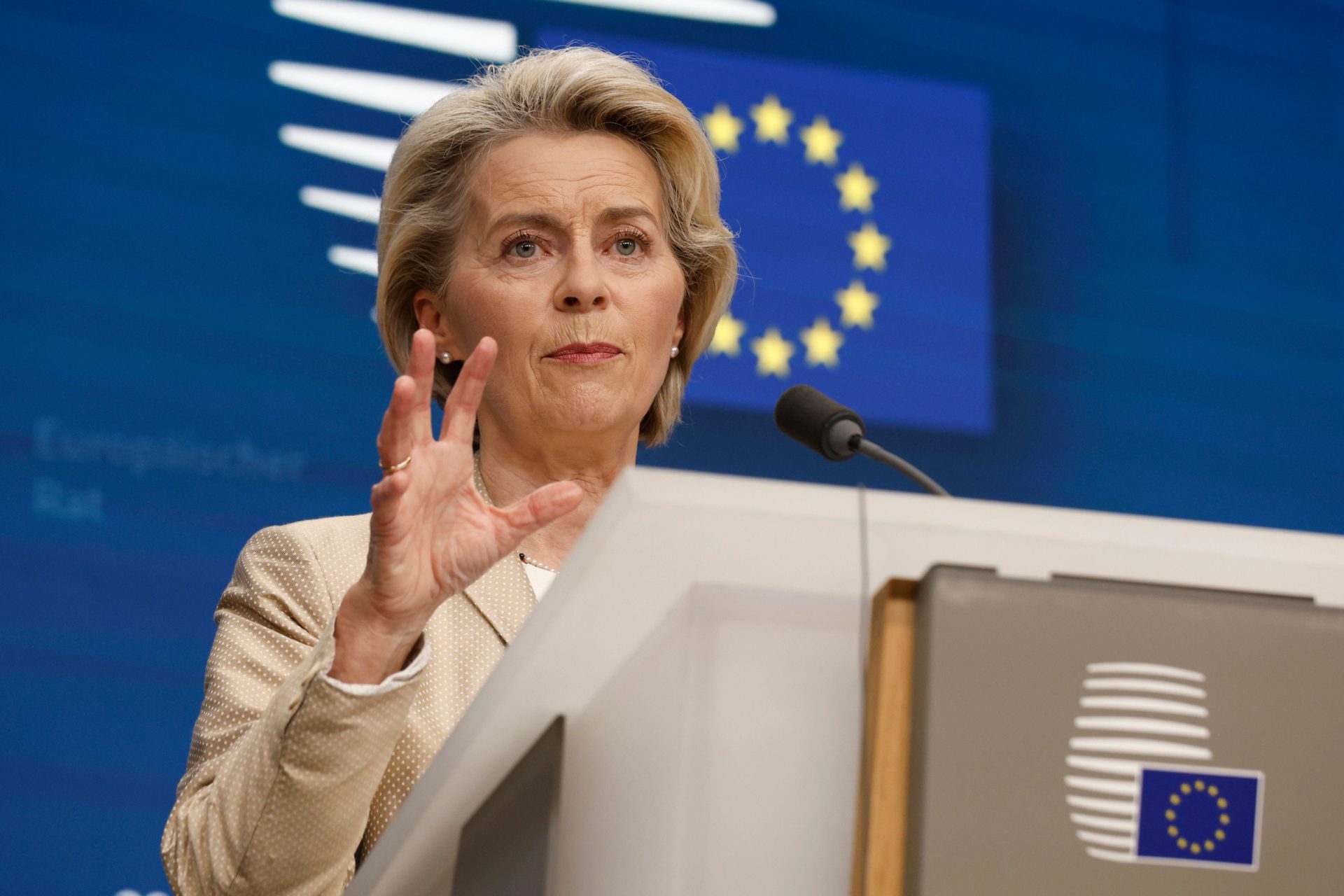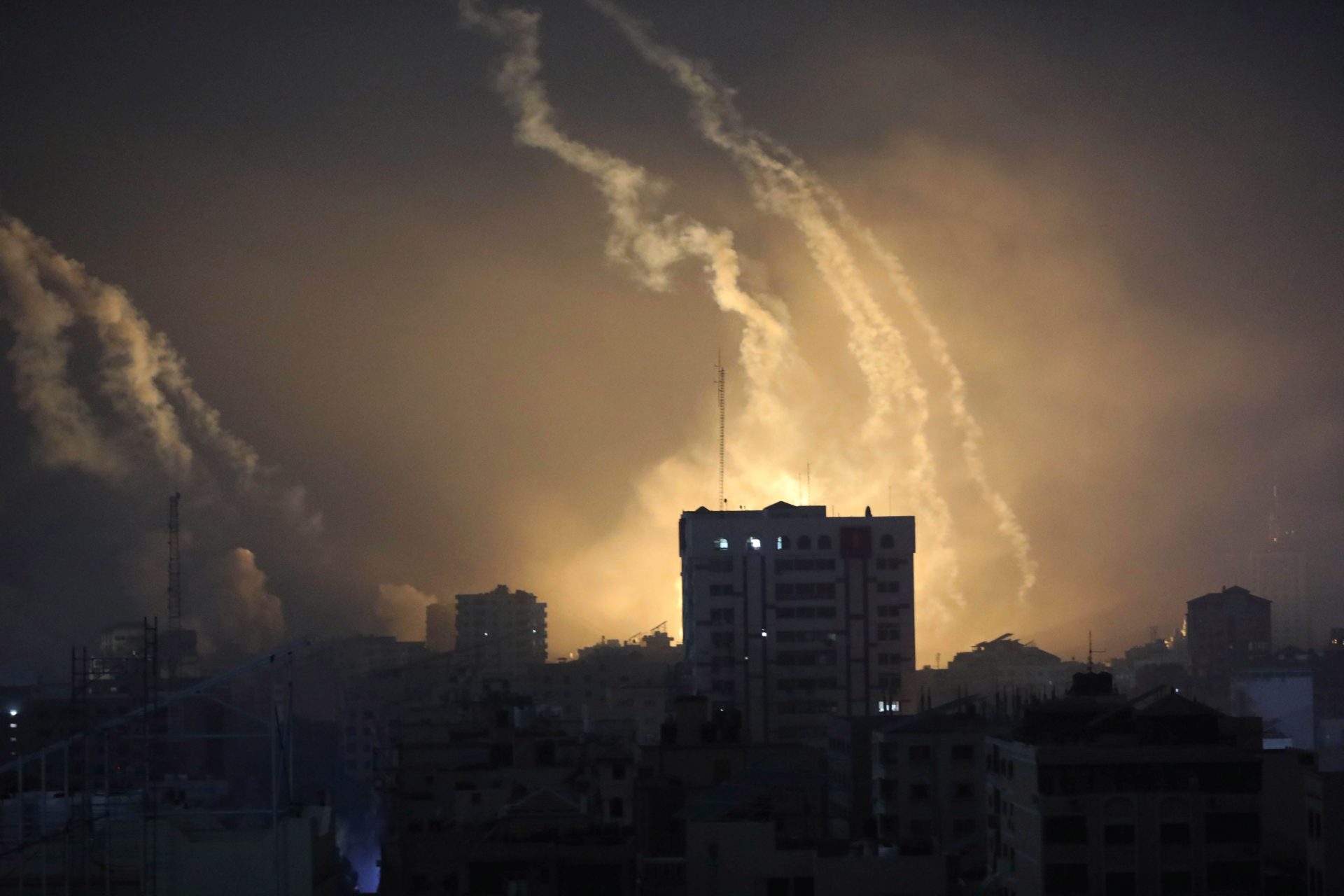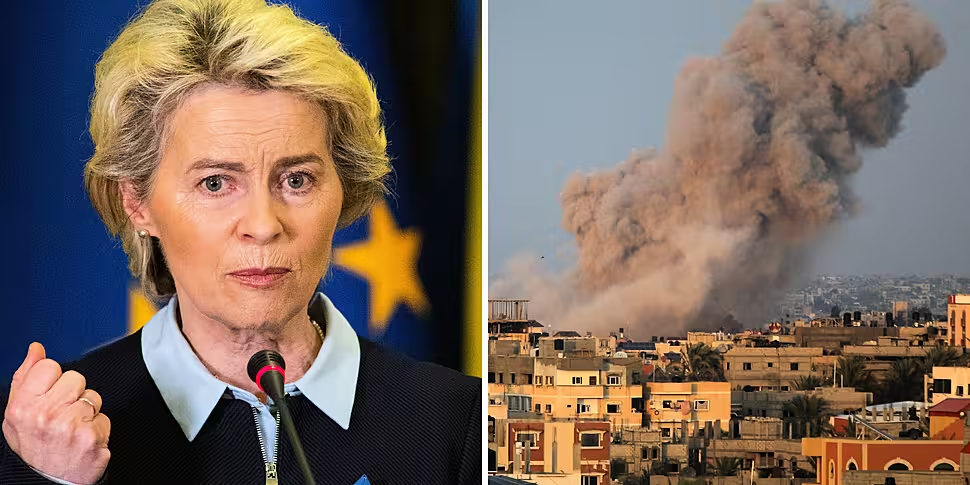The language surrounding the Israel-Palestine conflict has been extremely contentious – and Governments around the world are choosing their words carefully.
Last week, the EU called for a “humanitarian pause” on the conflict for a brief time to allow aid to come into Gaza.
However, the debate over how the bloc should phrase its messaging caused tension among member states.
Politico reporter Suzanne Lynch told The Pat Kenny Show today that EU representatives "agonised” in Brussels for two days over how to phrase their declaration.
“Certain countries were really advocating against the word ‘ceasefire’ being used,” she said.
“Other countries, including Ireland and Spain, that traditionally have taken a more pro-Palestinian stance, advocated for a ceasefire.”
Ms Lynch said that, while the EU doesn’t seem to have a huge impact on the “day-to-day progress of the war,” countries around the world are very careful on the language they use to describe the conflict in Israel and Palestine.
“The reason that a number of countries - including Germany and Austria mainly - were against this idea of ceasefire is they feel it would embolden Hamas,” she said.
“They still are saying that Israel has a right to respond to this attack.”
European Commission President Ursula von der Leyen also visited Israel shortly after the first attack by Hamas and said the country had a duty to defend itself and protect its people against the “atrocious” acts of Hamas – but failed to call on Israel to respect international law or be proportionate in its response.
 European Commission President Ursula von der Leyen speaks during a media conference at an EU summit in Brussels, 27/10/2023. Image: AP Photo/Omar Havana
European Commission President Ursula von der Leyen speaks during a media conference at an EU summit in Brussels, 27/10/2023. Image: AP Photo/Omar HavanaMs Lynch noted the UN did call for a ceasefire as there are "a lot more countries within the broader UN community who do advocate for a ceasefire".
“Some countries, for example Germany, abstained because they felt that it wasn't enough criticism of Hamas," she said.
Increased concerns
Former Barnardos CEO Fergus Finlay agreed with Ms Lynch’s analysis but said the debate over language doesn’t mean any democratic country is pro-Hamas.
The arguments over how to describe the conflict have become contentious following Israel’s response to Hamas’ attacks, according to Mr Finlay.
“If this was couched as a pro-Hamas or anti-Hamas argument there'd be no issue about language at all,” he said.
“Every democratic country in the world was horrified at what Hamas did on October 7th and every democratic country in the world was willing to support an Israeli response.”
 Smoke and explosions caused by Israeli bombardment are seen on the horizon in northern Gaza, 28/10/2023. Image: AP Photo/Abed Khaled
Smoke and explosions caused by Israeli bombardment are seen on the horizon in northern Gaza, 28/10/2023. Image: AP Photo/Abed Khaled“Most democratic countries in the world are becoming increasingly concerned and horrified at the disproportionate nature of what they see as the Israeli response,” he said.
“It goes way beyond the use of language, but even with the language that is being used, Benjamin Netanyahu is using language which, in my judgment, is the language of massacre.
“It is the language of dehumanising; he talks about, ‘We are the people of the light, they are the people of darkness’; he talks about wars between good and evil.
“He lumps the other side under one umbrella.”
Ceasefire
Mr Finlay said this language has disturbed many countries, adding that he believes successful calls for a ceasefire are unlikely right now.
“A ceasefire is something that would happen when a negotiator gets an agreement from Hamas, and from the Israeli Defence Forces,” he said.
“That’s not going to be easy to achieve.
“It's pointless calling on Israel to lay down its arms for a week or a month or a day unless Hamas agreed to do the same thing.”
Listen back here:









